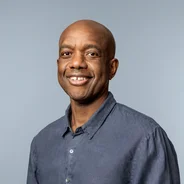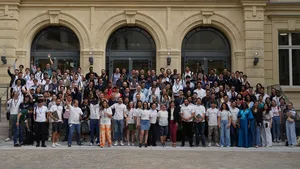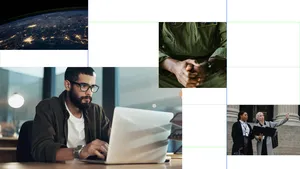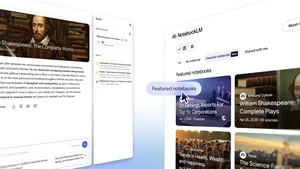Using data and AI to track progress toward the UN Global Goals

As a global community, we have a shared responsibility to build a better, more equitable, more sustainable future. This is the invitation — and imperative — of the United Nations’ Sustainable Development Goals (SDGs).
Eight years ago, the UN set the ambitious target of 2030 for achieving these bold objectives, which encompass poverty, world hunger, clean energy, gender equity, health and much more — and leaders from 193 countries signed on. We’re now halfway to that deadline. While we’ve made remarkable progress, we’re falling short of delivering with the speed and scale required. According to the most recent SDG report, more than 80% of the SDG targets are off track. Factors that have slowed or, in some cases, reversed progress include the COVID-19 pandemic, the climate crisis, conflict across the globe and economic uncertainty.
Each year the world fails to stay on track to meet the SDG targets has human consequences, which are not equitably distributed. So time is of the essence. But in order to meet the goals, we need to understand where things stand today.
That’s why Google’s Data Commons team has worked with the UN Statistics Division to build the UN Data Commons for the SDGs, a tool that tracks metrics across the 17 SDGs. The new UN Data Commons for the SDGs integrates authoritative SDG data and insights from across the UN system into a publicly available tool with AI-powered search functionality. This new tool will allow policymakers, NGOs and interested members of the public to easily access relevant insights and visualizations, gain valuable perspectives on SDG progress, and ultimately facilitate data-driven strategies and decisions. Users will be able to easily explore and download SDG data by region, country and Goal.
Led by the UN with funding from Google.org, the UN Data Commons for the SDGs is part of the UN data modernization initiative that aims to provide a single entry point for official data and statistics from across the UN system. UN SDG data is also now incorporated into Data Commons for use alongside other datasets, making it more broadly accessible and allowing nonprofits like the Nigeria Network of NGOs to track their country’s progress toward the SDGs.
A growing network
UN Data Commons for the SDGs is part of a larger Google Data Commons network that includes Feeding America, Harvard University's Institute for Quantitative Social Science, Stanford Doerr School of Sustainability, Resources for the Future, and TechSoup. This growing network is providing nonprofits, researchers and multilateral organizations with better access to the world’s publicly available data.
We’re building on this with a new collaboration between Data Commons and ONE, a global advocacy organization co-founded by Bono that brings together activists and NGOs, business and policy leaders, along with many others from around the world, with hard-hitting data to push for progress in achieving the SDGs. We’ve worked together to create a ONE Data Commons, which will bring together ONE’s data and analysis from data.one.org on the economic, political and social changes impacting Africa with the thousands of publicly available datasets in Google’s Data Commons.
“Data is critical to our advocacy because it sharpens our analyses and shapes better policies, and we are thrilled to partner with Google on this critical project,” says Gayle Smith, CEO of The ONE Campaign. “Data is not just about the numbers, it’s about empowering people to explore and unpack issues, amplify their voices, and act together to make change happen. We’re confident the data available on this platform will inspire and enable creative collaborations to build a better future.”
AI’s potential to help accelerate progress
We know we have a long way to go to meet the SDGs, and we believe that AI has tremendous potential to help people and organizations accelerate progress by reducing the time and resources required.
Some recent advances have made it easier to use AI to move the SDGs forward, including improved AI techniques, increased and diversified tech deployments, more funding, increased AI talent, and data collaborations. We’ve also seen democratization across geographies due to increased access and affordability with cloud, as well as increased use of internet-capable mobile devices.
In the past five years, Google.org has contributed more than $200 million and more than 160,000 pro bono hours to organizations around the world using AI to address major global challenges. That includes awarding $25 million this year to 15 organizations specifically focused on projects to advance the SDGs. Our grantees tell us that, on average, AI helps them achieve their goals in a third of the time and at half the cost.
Despite this heartening progress and the impressive work from many organizations in AI for the SDGs, achieving the scale required to drive impact on global targets remains a significant challenge. Some of the barriers we’ve observed are fragmentation of efforts, limited access to data and talent, and lack of knowledge sharing. We hope that the UN Data Commons for the SDGs and related efforts will help lower those barriers and advance work to meet the SDGs.







